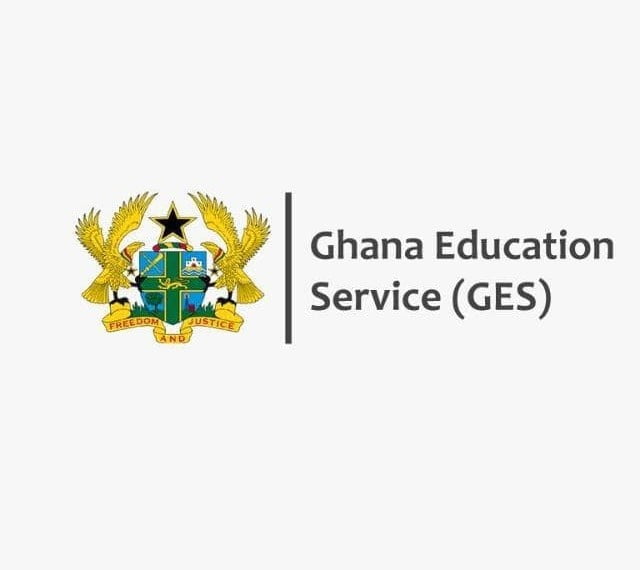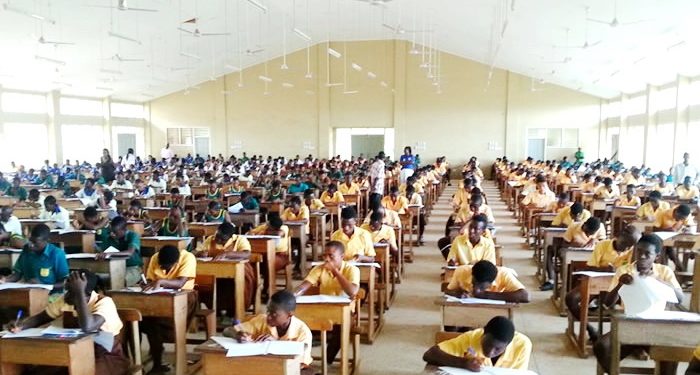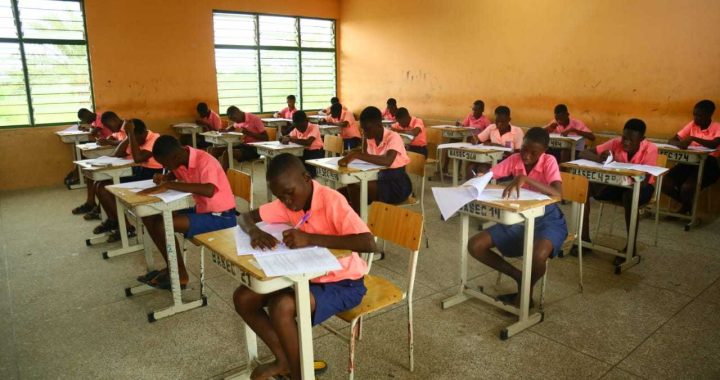Monday 9th March not a holiday for schools – GES

Monday 9th March not a holiday for schools nor the general public according to the GES. This was contained in a press release dated 6th March 2020 and signed by Prof. Kwasi Opoku-Amankwa, Director-General of GES.
The press release stated that the management of the Ghana Education Service expects teachers and pupils to take advantage of the weekend to rest and fully refresh themselves to resume academic work on Monday 9th March 2020.
READ: Press Release: Graduate Teachers with License
Per this notice, teachers, pupils, students, parents, and the general public is to take note that, schools across the country will be in session on Monday 9th March 2020 as directed by the Ghana Education Service.
READ: Marching For 63 Years, Still Relevant?
This means students and pupils would not enjoy the usual holiday they are given each year Ghana celebrates its independence anniversary in March.
READ: BECE / WASSCE 2020: How to pace yourself to answer all…
Tuesday 9th March not a holiday hence all teachers and pupils in both public and private basic and secondary schools must be in school as directed.
Today, marks Ghana’s 63rd independence anniversary and school children joined servicemen across the nation to celebrate our independence as a country. The theme for the event across the nation was ”consolidating our gains ”.
Brief History
Before the arrival of Europeans, Ghana was the location of the Ashanti, a powerful tribe in the region. The area had an abundance of natural resources, including gold and ivory, which attracted the attention of colonists.
While the Portuguese had been the first to establish a settlement in the region, the attractiveness of the local riches led to a struggle for control between many European nations.
In 1874, Britain took control over parts of the country, naming them the British Gold Coast.
Weakened by the efforts of World War II, Britain had begun the process of reducing its colonies around the world, including those Africa.
This desire was matched by a rising call for independence in the Gold Coast.
In 1947, the United Gold Coast Convention called for “self-government within the shortest possible time” following the Gold Coast legislative elections.
In 1951, Osagyefo Kwame Nkrumah won a majority in the Gold Coast legislative election and in 1952.
Nkrumah was appointed the leader of the Gold Coast government.
The Gold Coast region declared its independence from the United Kingdom on 6th March 1957 and established the nation of Ghana.
Kwame Nkrumah went on to become the first Prime Minister of Ghana.
“I am convinced that it is dangerous for the independent African states to wait any longer for the United Kingdom to do its duty. The time has come for the independent African state to take the initiative in their own hands,” said Nkrumah at the height of African countries fight for independence from colonial rule.
Great crowds gathered in the streets of Accra at midnight, when the Gold Coast officially became the sovereign State of Ghana, Dr Kwame Nkrumah, lowered the Union Jack at the Parliament building and hoisted the red, green, and gold flag of the new country.
The full celebrations were not due to begin until after the State Opening of Parliament by the Duchess of Kent, but the city was already in an excited mood.
The crowds were thickest around the Parliament building, which was ablaze with lights, and all traffic in the area was at a standstill.
As midnight approached a band marched into the district followed by a thousand dancers – adding to the din created by the crowd, car hooters and fireworks.
Just before midnight, Dr. Kwame Nkrumah addressed the Legislative Assembly at its last session before it was prorogued by the Governor, Sir Charles Aden-Clarke.


 Bimbilla: College of Education students leave campus as CETAG strike continues
Bimbilla: College of Education students leave campus as CETAG strike continues  Angie’s Leaked Tape: Angie Stylish Has Disgraced Konongo Odumase School – School Mate Angrily Speaks
Angie’s Leaked Tape: Angie Stylish Has Disgraced Konongo Odumase School – School Mate Angrily Speaks  1st STEM College of Education in Ghana: Bawumia cuts sod for construction
1st STEM College of Education in Ghana: Bawumia cuts sod for construction  Stop denying students exeat; NAGRAT to SHS Heads
Stop denying students exeat; NAGRAT to SHS Heads  BECE; Four Teachers caught up for assisting students- WAEC
BECE; Four Teachers caught up for assisting students- WAEC  North Tongu District BECE Candidates prevented from wearing shoes or belts
North Tongu District BECE Candidates prevented from wearing shoes or belts  Bawumia’s smartphone pledge misguided and visionless – Adongo
Bawumia’s smartphone pledge misguided and visionless – Adongo  Good Grow: The Marijuana Farm Founded by Akufo-Addo’s Daughters
Good Grow: The Marijuana Farm Founded by Akufo-Addo’s Daughters  National Food Suppliers for Free SHS set to picket at Education Ministry
National Food Suppliers for Free SHS set to picket at Education Ministry  Information Ministry justifies ¢151k paid to staff as Covid-19 risk allowance
Information Ministry justifies ¢151k paid to staff as Covid-19 risk allowance